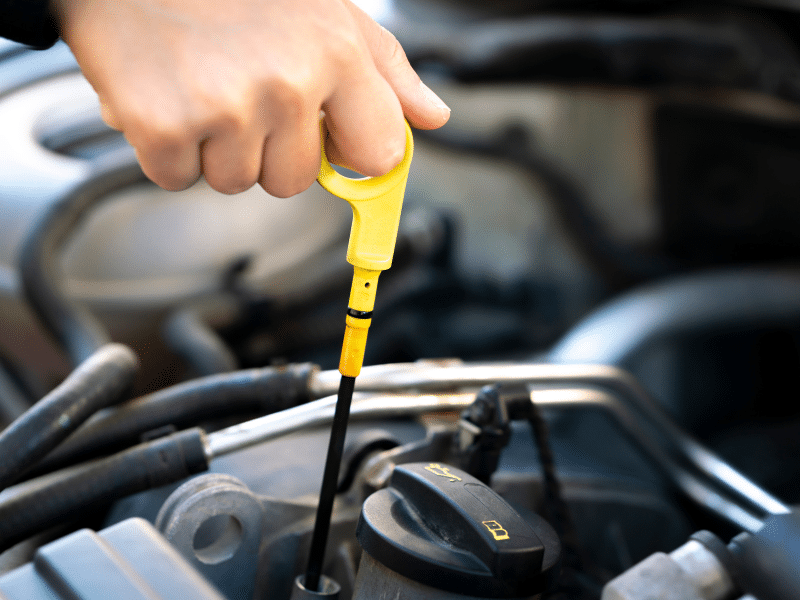Signs of low engine oil
The primary purpose of engine oil is to lubricate all of the moving metal pieces inside your car’s engine. It ensures that the pistons, valves, and other components run smoothly while also minimizing friction and reducing component wear. This translates into fewer breakdowns and a longer engine life. Engine oil also helps your engine’s cooling system by aiding heat transfer.
Oil changes are a crucial part of routine vehicle maintenance. Failing to change your engine oil regularly can lead to several problems, ranging from increased fuel consumption to serious engine damage. So, you must watch out for the signs of low engine oil, some of which include:
Warning light
When the oil pressure drops below a certain level, the oil pressure sensor may trigger the oil warning light on the dashboard to come on. If the light is illuminated, you should find a safe place and pull over. Check the oil level. If the oil level is not low and the light has still come on, it could be due to a faulty oil pressure sensor.
Burning oil smell
If you can smell burning oil inside the cabin, you should immediately pull over and turn off the engine. The burning smell could be a sign that the oil is leaking and dripping onto hot engine parts. Let the vehicle cool down and then check the oil levels. If the oil levels are low, do not drive your vehicle any further.
Strange noise
One of the most common signs of low engine oil is a knocking or clunking noise. The main job of engine oil is lubrication. When there is not enough of it, the moving parts will not get the lubrication they need and they will make a knocking sound. This noise can also result when the oil is very old and has lost its viscosity. In any case, your vehicle will need an immediate oil change/top-up.
Dirty oil
Engine oil is light to dark gold in color. Over time, the oil may change its color and become darker. It is both due to heat and the dirt and debris that it gathers when it is being pumped through the engine. So, it is important to keep an eye on the oil color. If you find it is dark and dirty, you will need an oil change.
Overheating engine
An overheating engine is also a very common sign of low engine oil levels. It is a sign that should not be ignored as it can lead to some serious damage. When there is not enough oil, it causes more friction, which in turn results in your engine getting overheated. If ignored, it can also cause a fire. If your engine is overheating, immediately pull over.
Sluggish performance
A vehicle’s speed usually increases when more force is applied on the accelerator. Drivers most of the time have awareness of who much force is needed to increase the speed. But if the car felt sluggish when accelerating it could be of the signs of low engine oil.
Engine oil levels can also impact your vehicle’s efficiency. The engine oil provides the lubrication necessary for the smooth functioning of the engine. The lack of it can cause the engine to work harder, which can reduce its efficiency and over time, it can lead to severe damage.
Poor fuel economy
When the oil levels are low, the engine has to work harder to meet your vehicle’s demands. This means it will burn more fuel than it normally would. This can adversely affect the fuel economy,
Low engine oil pressure not only affects your vehicle’s performance but can also shorten the life of your engine. If you are facing any engine oil issues, bring your vehicle to us for an oil change and necessary maintenance.


